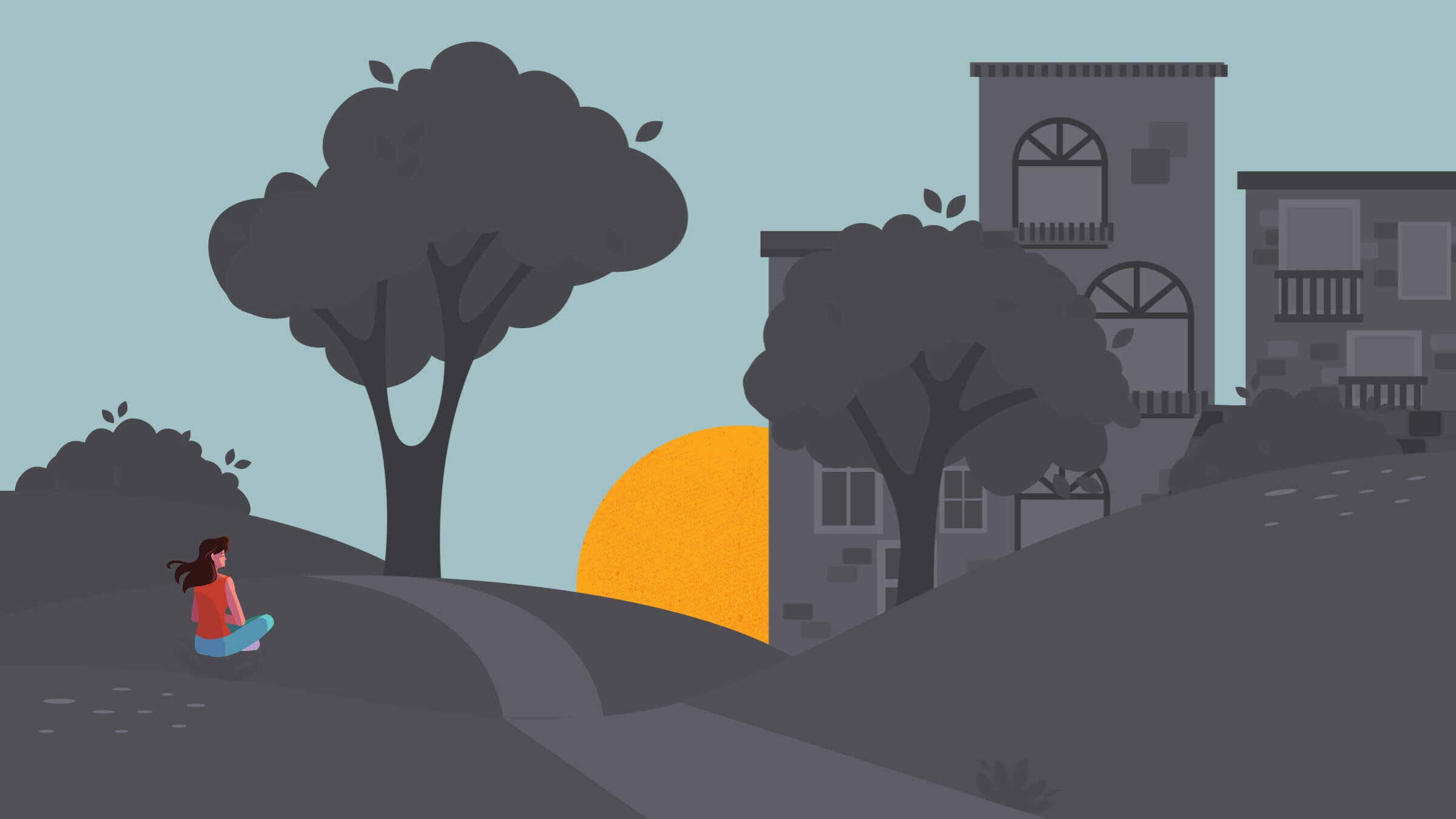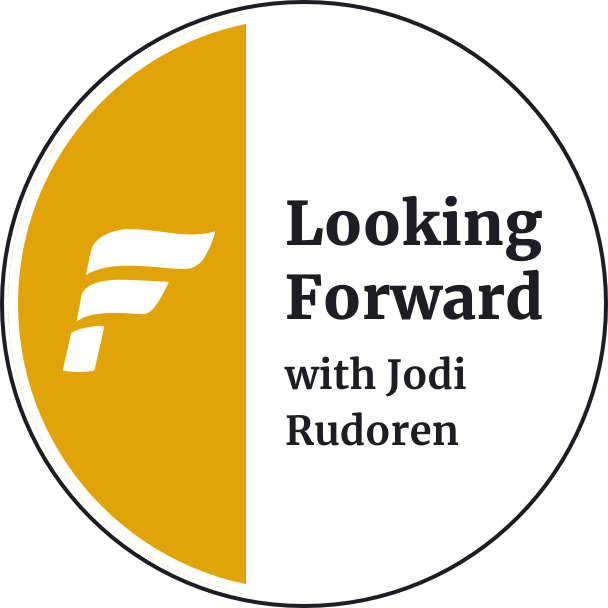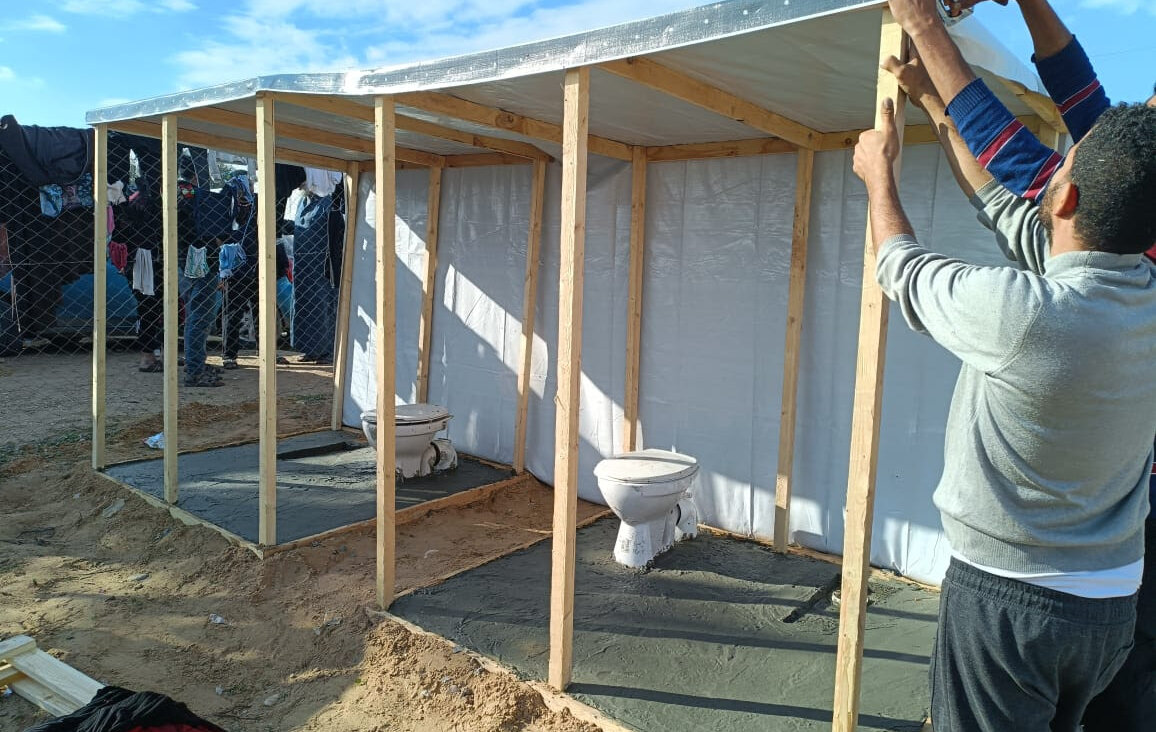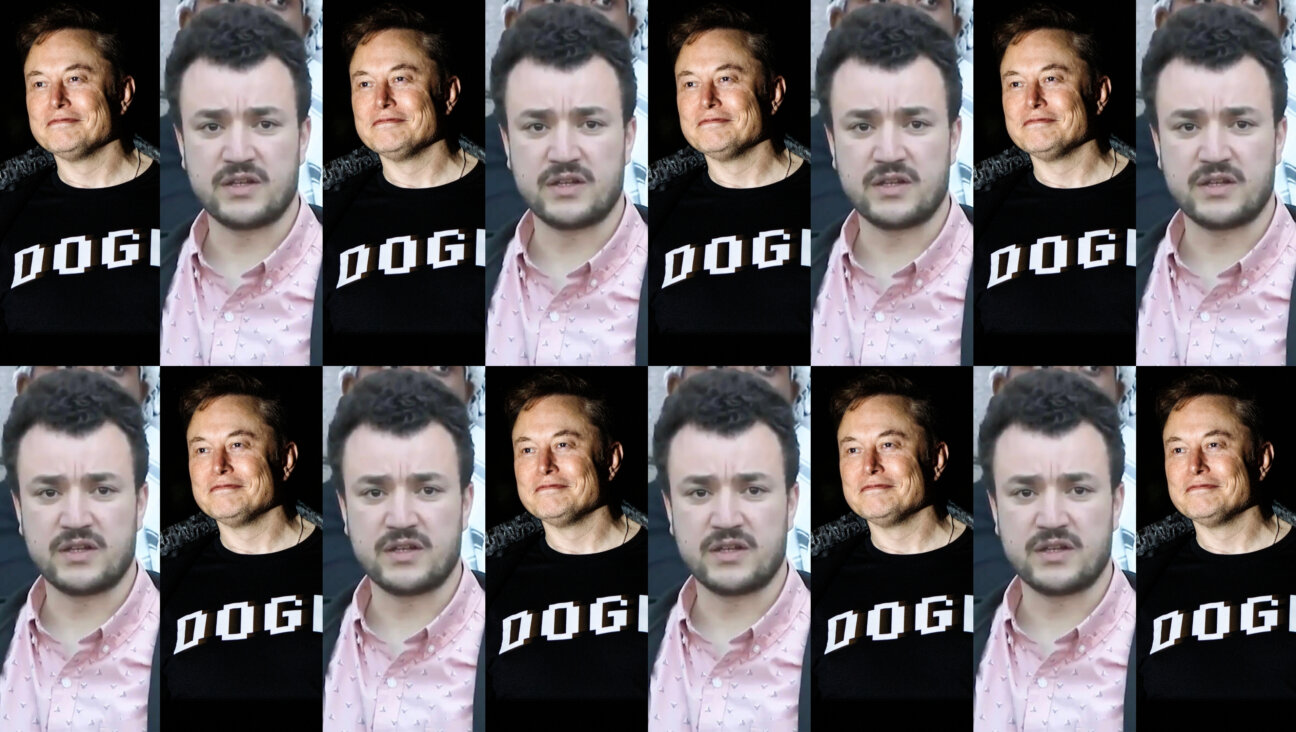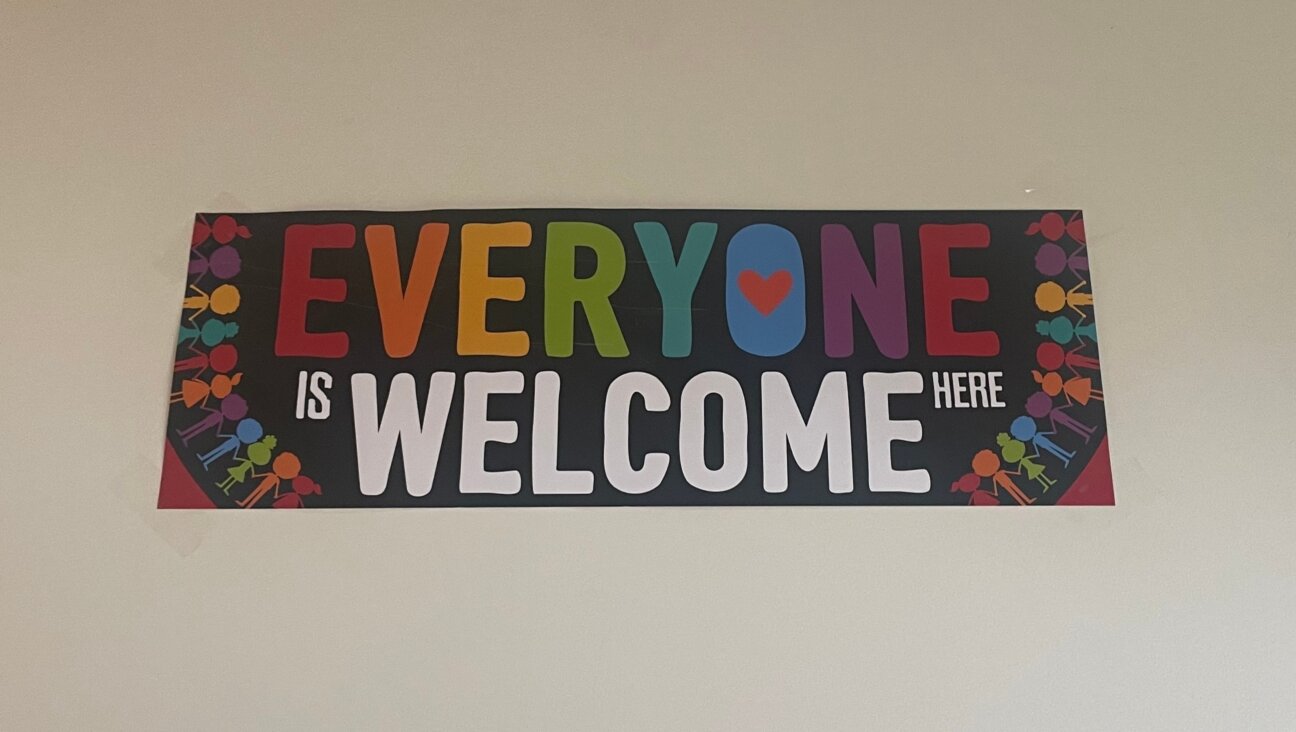This is our editor-in-chief’s weekly newsletter. Click here to get it delivered to your inbox on Friday afternoons. So you get up from shiva and walk around the block. Or, in my case, up the block and into a public garden. It is February, so there are no flowers, but it is 52 degrees under full sun, a remarkable morning to be up and outside and on a walk.
There is a toddler in the garden with his caregiver, and there is our little posse —six middle-aged mamas and one of their husbands, the friends with flexible enough schedules to stay after the minyan, after the bagels and the babka, to take this walk with me. We sit for a week, and then we get up and take a walk. There does not seem to be a clear written source for this custom, but it is a simple one with a strong metaphor — or, as we Jews tend to prefer, a couple of them. The walk signals that we mourners are reentering society, or at least the next, less intense phase of our mourning; the friends walk with us to ease our transition. And, for those inclined to the mystical, we “accompany the soul on its path,” as the Chabad website puts it. In any case, you get up from shiva and take a walk and then you’re back in the house, alone with all that babka. You remove the sheets that have been covering the mirrors, and gather up the snapshots of your Dad that you’ve scattered on the coffee table. You consolidate the platters of pastry that people brought, put what’s freezable into the freezer. You’re not quite sure what to do with the black scarf you tore at the funeral and have wrapped around your neck every day since, so you leave it on top of the low chair you’ve been sitting in, and then you sit down somewhere else. |
My father lived a life that wildly exceeded his expectations, and had what can only be described as a good death. He was 82, which is hardly old these days, but not young, either; when he turned 60 he’d told my mom he hadn’t expected to live even that long. Dad grew up poor in the Dorchester section of Boston and didn’t go to college and became a kosher butcher and said that being a grandfather — Papa was his preferred term — was the role he relished most. He and mom would have celebrated 60 years of marriage in March. After Dad decided to go into hospice, we were able to gather what he’d dubbed the Home Team — mom, me and my two older sisters, our husbands, and the seven grandkids — for a final Shabbat dinner. From his hospital bed in the dining room where he had hosted so many holiday feasts, Dad recited kiddush, blessed the children and had a few bites of gefilte fish. By Sunday, he’d stopped even drinking the strawberry milkshakes that were sustaining him. He died early Tuesday, Feb. 7, the 16th of Shevat. At the funeral, Rabbi Benjamin Samuels of Shaarei Tefillah — the breakaway Orthodox shul my dad helped start 40 years ago — taught from Pirkei Avot, the Sayings of the Fathers. Who is rich? A person who is satisfied with their portion — or, as some translations put it, someone who rejoices in their lot. Rabbi Samuels nailed it with that one. Dad liked big portions, don’t get me wrong, but he reveled in what he had. He felt full, and he told us clearly he was ready to go. So we spent the next week sharing stories — and hearing stories. A college friend reminded me of how Dad boarded the buses taking guests home from my wedding and made them circle the block a few times to keep the celebration going. A woman we’d never met told my sister how for years Dad helped her husband, who’d lost the use of his arm to a stroke, wrap tefillin at morning minyan. How my parents met at a deli where he was a counterman and she took coffee breaks from her job at the phone company. How he took us girls shopping for underwear for camp when Mom had cancer in the 80s. How he taught the grandkids to play gin rummy. And then we got up from shiva and took a walk. |
“Who is rich? The person who is happy with their lot.” |
The sidewalk between my house and the garden up the block is uneven, some of the slate pieces cracked. That seemed apt, almost poetic. We are unsteady as we get up from shiva, broken from our loss, but we can still make our uneven way in this cracked world. My father was not a person prone to going for walks in public gardens, or going for walks at all, really, except to and from shul on Shabbat mornings. One of the stories we had told Rabbi Samuels before the funeral was how Dad was inspired to return to regular synagogue-going as a young father when he saw an acquaintance walking home from services at Nantasket Beach one Saturday holding his kids’ hands. Soon that was us, sometimes in matching dresses my mom made, sometimes fighting a little over which two would get to hold his hand. One of the stories I told at our final Home Team Shabbat dinner was about walking home from Kol Nidre services when I was about 8 years old. I loved coffee as a kid, and was always trying to get special permission to have some. So when Dad mused about having coffee and cake when we got home, the trademark twinkle in his eye not visible in the dark, I begged to be allowed a cup. “You can have whatever I have,” he quipped. It wasn’t until we got inside that I remembered it was a fast day, and realized that he — and therefore I — would be having neither cake nor coffee. Rabbi Samuels had described the post-shiva mourning period, the first month and the first year, as one of dislocation. The world keeps spinning, and yet it is not the same for us mourners. He suggested that when we go to synagogue, maybe don’t sit in our regular seats. Dislocation can refer to the displacement of a bone at a joint, or discontinuity in the lattice structure of a crystal. “Disruption of an established order,” is one definition. Another: “disturbance from a proper, original, or usual place or state.” My strong, stoic mother said more than a few times in these last few weeks, “it is what it is.” She is right, of course, and so is Rabbi Samuels. What it is is dislocated — disrupted, disturbed, broken like the sidewalk, but yes, still spinning. Shiva is like a cocoon. You are enveloped by the community, surrounded by love and stories and photo albums and babka. But when it ends, you don’t emerge a butterfly; you emerge dislocated. It’s three days since I got up. I have said Kaddish at three different online services. And this morning, I went out again for a walk, along the cracked sidewalk and into the garden without flowers, thinking of him. |
Thanks to Matthew Litman for contributing to this newsletter, and Adam Langer for editing it. Shabbat Shalom! Questions/feedback: [email protected] |
|
|
| A University of Arizona professor was killed on Yom Kippur. The graduate student accused of the murder had previously said, “Kikes should not be allowed to exist anywhere.” The professor was not Jewish, and the student was also upset about a bad grade. Our Arno Rosenfeld did a deep dive into what might — or might not — have been last year’s most serious act of antisemitism. Also: How Hollywood found its Anne Frank, what happened to the world’s biggest painting, a hymn for Black-Jewish unity, and more. Download the printable (PDF) ➤ |
|
|
WATCH: THE WEEK’S JEWISH HEADLINES |
If you love our morning newsletter, Forwarding the News, you’re going to really love this new video series. Your Forwarding host Benyamin Cohen and Laura E. Adkins, our opinion editor, dish on the week’s Jewish news, and chat with the culture desk’s Mira Fox about the new Netflix romantic comedy You People. |
|
|
Yesterday would have been the birthday of Margot Frank, Anne’s older sister, whose deportation order hastened the family into hiding. The day before was the birthday of Miep Gies, one of the Dutch citizens who helped hide the Franks in the annex above Otto Frank’s business. I’m mentioning these in case you need a particular excuse to listen to our podcast about how The Diary of Anne Frank shaped the people involved in its theatrical production, but honestly you don’t need an excuse, you should just listen because it’s excellent. |
|
|
|
